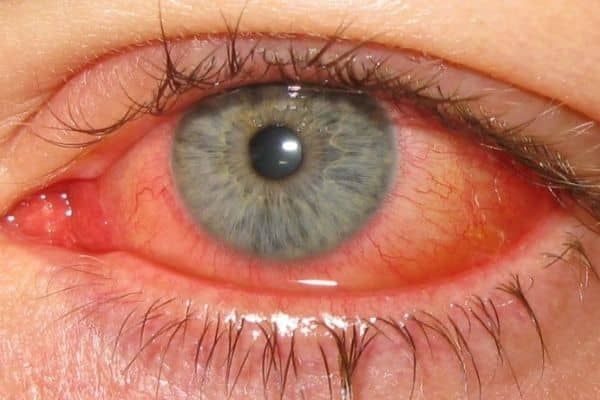In a concerning turn of events, Punjab, Pakistan, is grappling with a significant outbreak of pink eye, with over 86,000 cases reported in the province in September alone. This surge has prompted authorities to take urgent measures, including the closure of schools and granting leave to healthcare staff affected by the infection. Medical experts fear that the number of cases may continue to rise, highlighting the need for immediate attention to prevent further spread of the disease.
According to recent data released by the provincial health department, an alarming 13,000 new cases of pink eye were reported in Punjab within just 24 hours. Over the past seven days, more than 40,000 cases have been documented, painting a grim picture of the situation. The Bahawalpur district leads the list with 16,744 reported cases, followed closely by Faisalabad with 10,022 cases and Lahore with 7,538 cases.
The rapid increase in cases has raised concerns among medical experts, who anticipate further spikes in the coming days based on daily reports of new patients seeking treatment. Notably, Dera Ghazi Khan reported 3,998 cases, Gujranwala 3,834, Multan 3,311, Sheikhpura 3,027, Layyah 2,223, Norowal 2,843, Sialkot 2,646, Muzaffargarh 2,097, Kasur 2,424, and Khanewal reported 2,066 pink eye cases.
Of particular concern is the fact that the outbreak appears to have been initially ignored by Punjab health authorities in terms of preventive measures. This is alarming, given that the number of cases has more than doubled since August when a total of 47,205 patients complained of infection across the province.
However, in September, the Punjab government finally took the situation seriously and implemented emergency measures to curb the outbreak. The Primary and Secondary Healthcare Department Punjab issued a notification instructing state-run hospitals to grant leave to all staff members, including doctors, nurses, and paramedics, who are suffering from pink eye infections. This measure aims to minimize the physical interaction of affected patients with other employees, reducing the risk of further transmission.
In response to the escalating crisis, the Punjab government announced the temporary closure of all public and private schools in the province for four days due to the outbreak of conjunctivitis, commonly known as pink eye. This highly contagious eye infection has been rapidly spreading across Punjab, affecting people of all age groups. Many school-going children have contracted the virus, prompting school administrations to allow affected students to stay home.
Medical experts have noted that pink eye is spreading rapidly in densely populated areas, including factories, markets, and plazas, where individuals are exposed to less-than-ideal environmental conditions.
The Punjab School Education Department (SED) issued a notification regarding the closure of all educational institutions from September 28 to October 1, with schools set to reopen on October 2. The notification emphasized the observance of standard operating procedures (SOPs) to curb the spread of conjunctivitis infection.
Caretaker Chief Minister Mohsin Naqvi, during his visit to a school on Ravi Road, expressed deep concern upon witnessing children affected by conjunctivitis in the classrooms. He announced a statewide holiday for schools in Punjab and extended the closure to Saturday, the day following Eid Milad. The CM’s decision was based on the hope that a four-day break for students would help reduce the spread of conjunctivitis, with the situation expected to improve by the time schools reopen.
Mr. Naqvi also took note of the inadequate infrastructure in schools, including outdated computer systems and insufficient lighting and fans in classrooms. He ordered the purchase of new computers and called for improvements in school infrastructure to ensure a conducive learning environment.
Punjab is currently grappling with a significant outbreak of pink eye, with over 86,000 cases reported in September. The alarming surge in cases has prompted the Punjab government to take swift action, including the closure of schools and granting leave to healthcare staff affected by the infection. The situation is being closely monitored as medical experts fear further spikes in the number of cases. Urgent measures are being taken to prevent the further spread of the disease and ensure the well-being of the affected population.


